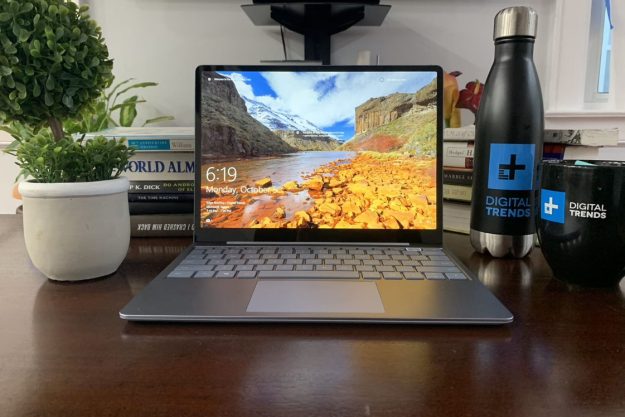
So what is it, exactly? Good question. Last January, we reported on efforts to develop an “adaptive shell” called C-Shell for Windows 10 so that the platform can properly scale out across PC, mobile, console, HoloLens, and embedded devices. Different products running Windows would use different iterations of that shell. And according to noted Microsoft-watcher Mary Jo Foley, Polaris is Microsoft’s effort to build a desktop Shell using C-Shell to run on top of the Windows Core OS.
Maybe, maybe not. Here’s another theory: Polaris could take over for Windows 10 S, the pared-down student version of Windows 10 that Microsoft is using to test the lightweight OS waters.
Windows 10 S could be seen as something of a trial balloon here, with Microsoft angling toward the education market to see how a pared-down Windows experience would go over with the average user.
Polaris reportedly aims to strip out all the legacy components that make Windows 10 a full-featured operating system in favor of a system designed around the basics — like Chrome OS. An operating system designed for people who typically work out of a web browser. The new Windows Polaris would be quicker, more nimble, and carry a lot less baggage.
Polaris would, according to Window Central, be built entirely on Microsoft’s Universal Windows Platform, or UWP, making it a much more hospitable environment to existing UWP apps and potentially offer battery life and performance gains. (The world’s reaction to UWP has been … somewhat mixed.)
“The current Windows Shell is one of the major legacy components that Microsoft is replacing in Polaris; it is also stripping out legacy, unneeded Win32 components and apps like Notepad or Paint in favor of a UWP experience, just like Windows 10 Mobile,” Windows Central reports.
It’s an interesting move and it certainly makes sense with Microsoft’s recent shift toward unifying its Windows experience across all of its platforms, but it’s unclear whether or not Polaris would end up seeing widespread adoption. Currently, Chromebooks offer a unique niche for lightweight on-the-go computing, and Windows 10 exists in its full version on laptops and mobile devices up and down the price spectrum without any issues. Pulling out functionality in favor of marginal gains in performance and battery life might not appeal to the average laptop, tablet, or 2-in-1 user.
Editors' Recommendations
- The unsung hero behind the modernization of Windows laptops
- The next big Windows 11 update has a new hardware requirement
- The most common Windows 11 problems and how to fix them
- Microsoft finds a sneaky way to slip more ads into Windows
- Microsoft announces a new threat to push people to Windows 11


